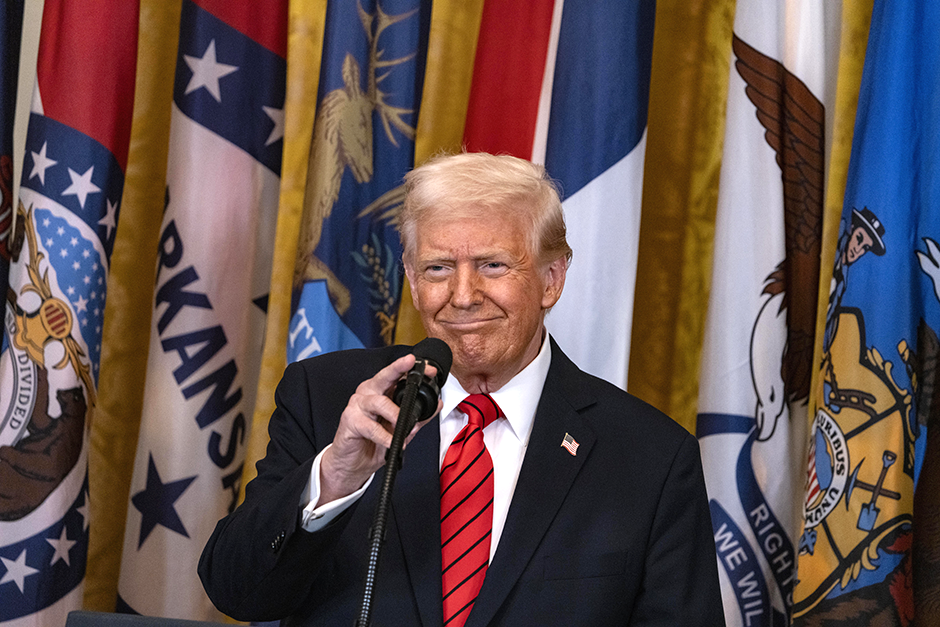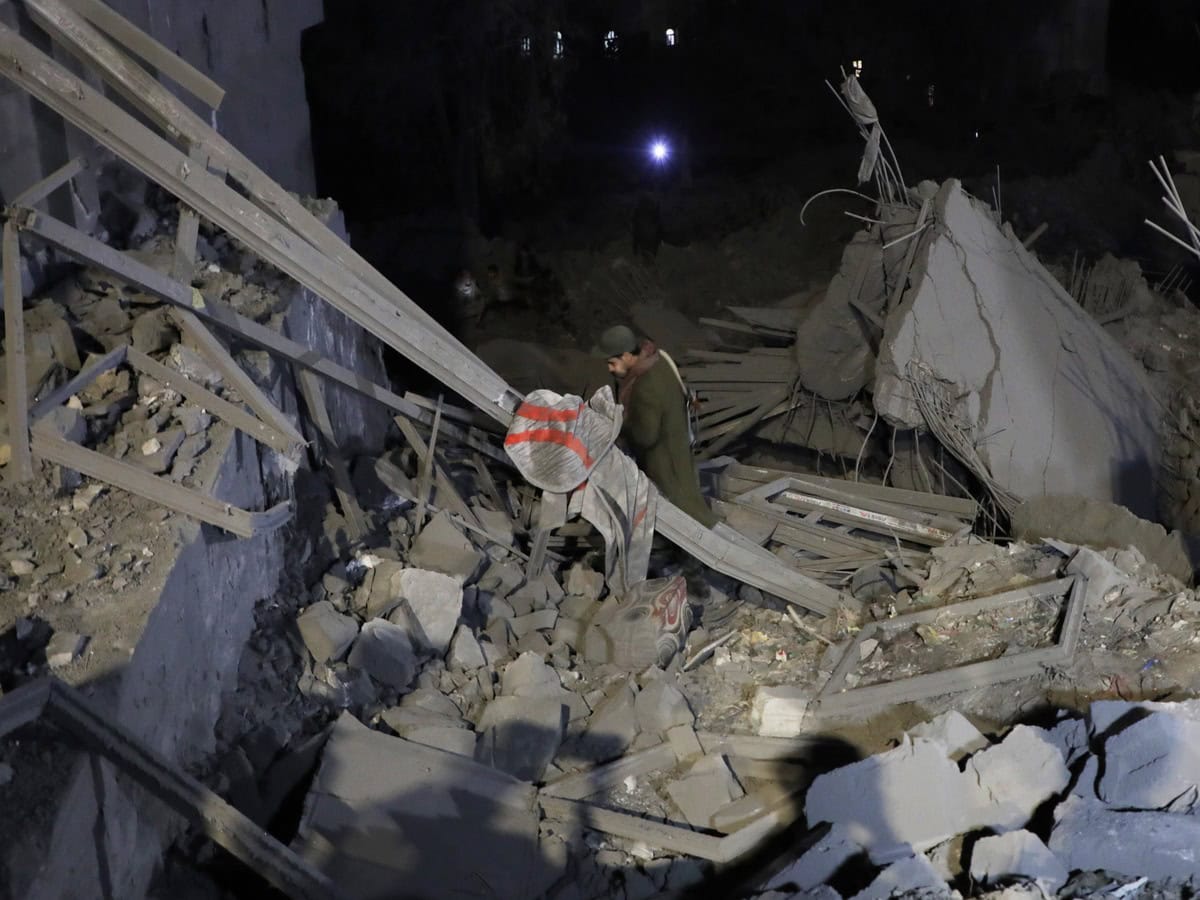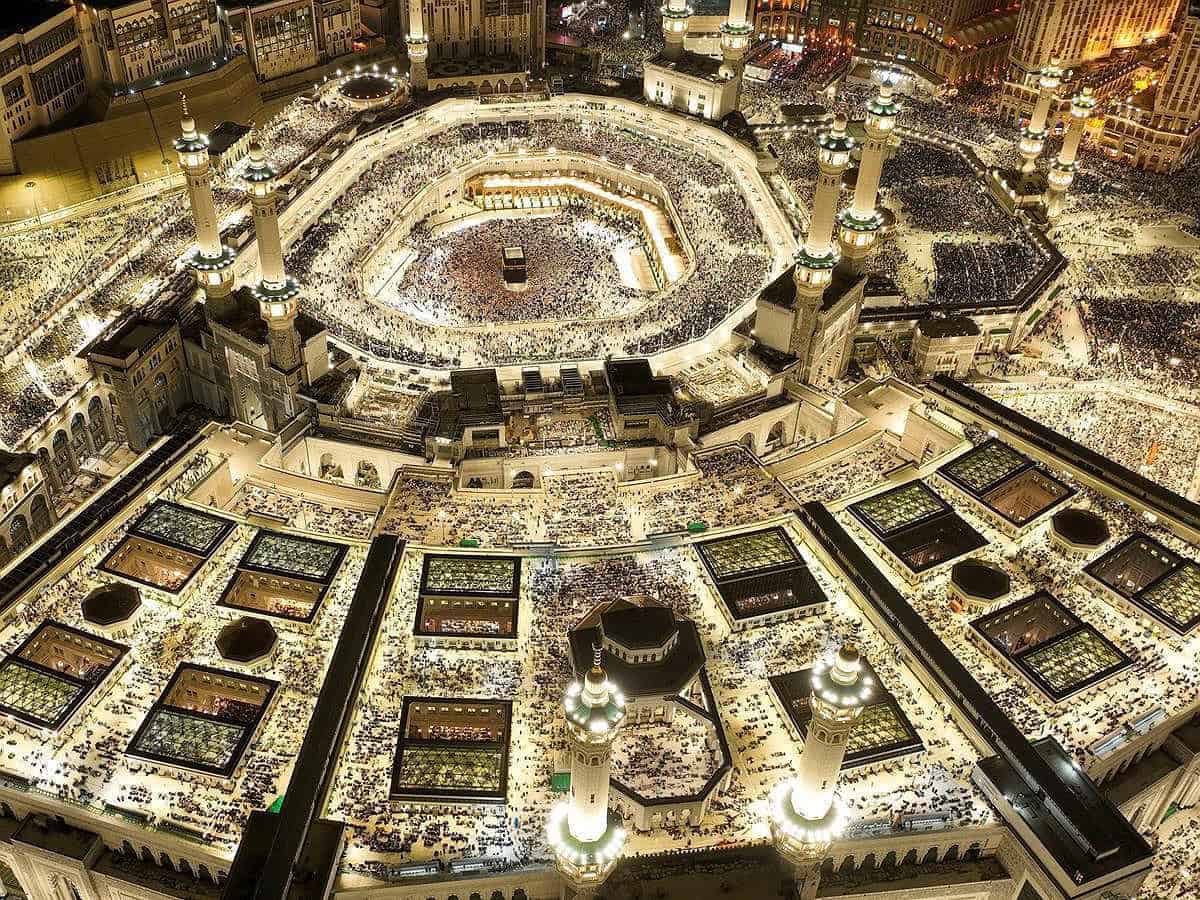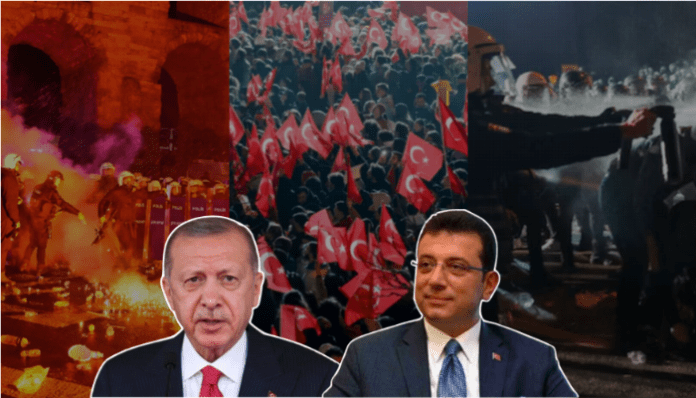




Ekrem Imamoglu (54), the mayor of Istanbul and a member of the opposition Republican People’s Party (CHP) was taken into custody by Istanbul police early on 19th March and was formally arrested and jailed five days later. He and 106 other people were charged with aggravated fraud, extortion, bribery, leading and taking part in a criminal organization, unlawfully obtaining personal information, manipulating tenders and assisting a terrorist group, according to the prosecutor’s statement. However, the development sparked a nationwide agitation.
Many Turkish cities, especially Istanbul, witnessed huge and persistent protests with tens of thousands of demonstrators calling the action a politically motivated decision in support of President Recep Tayyip Erdogan (71). Interestingly, a day earlier, on 18th March, Istanbul University revoked bachelor’s degree of İmamoglu over claims of a fraudulent transfer from a Cyprus university at 30 years prior. This was a significant political development because a college degree is necessary to be eligible to run for president in the country.
People in Turkey are rising up in protest against Erdogan…
— Art Candee
And Elon Musk is suspending accounts to help shield him.
Free speech absolutist, my arse. pic.twitter.com/3nNdpufeBl(@ArtCandee) March 22, 2025
Imamoglu has previously faced other cases and contended that they were motivated by politics. He had been named the CHP’s presidential candidate for the 2028 elections and a formal announcement was set for 23rd March. The party was founded by Mustafa Kemal Ataturk, the first president and founder of the modern Turkish republic. Attorney Mehmet Pehlivan, who represented Imamoglu in the inquiry was also arrested “for fabricated reasons” after which Imamoglu responded, “As if the coup on democracy wasn’t enough, they can’t stand the victims of this coup defending themselves.” He previously announced that the prosecution against him was “a black stain on our democracy” and further stated, “I stand tall. I will never bow.”
Nearly a year ago, the CHP won the municipalities of 36 of Turkey’s 81 provinces, marking a major victory in local elections. Additionally, it recorded mayoral victories in Istanbul, Ankara, Izmir, Bursa, and Antalya, the five biggest cities in the nation. Imamoglu has become a popular leader who has the backing of many groups, including secular voters and the Kurdish ethnic population. He was elected mayor of Istanbul in 2019, bringing an end to the 25-year rule of Erdogan’s Justice and Development Party (AKP). Due to Erdogan’s pivotal participation in the campaign, the elections were perceived as a de facto vote on him.
Brutal crackdown on protestors
At least 2000 individuals, including opposition activists, students, and journalists covering the protests, have been arrested by the government in a brutal crackdown. Echoing Erdogan’s rhetoric denouncing the protests as “street terror” a “disruption of public order” and “vandalism,” Interior Minister Ali Yerlikaya also pledged “no concessions” for those who “terrorize the streets.” Large crowds have repeatedly defied protest ban and took to the streets with the nightly agitation frequently turn into running confrontations with riot police, whose actions have been condemned globally.
The scale of the initial protests was modest for a city of over 16 million residents. Since then, however, they have expanded to dozens of other Turkish regions and are currently at a level not seen in over ten years. Protesters akin to Gezi demonstrations raised slogan, “Taksim everywhere, resistance everywhere” in reference to the movement’s (protest to contest the urban development plan for Istanbul’s Taksim Gezi Park which later turned into a massive agitation across Turkey) well-known catchphrase from 2013.
CHP Genel Başkanı Özgür Özel:
— ANKA Haber Ajansı (@ankahabera) March 22, 2025
"Bir milyon kişi gönül gönüleyiz. Siz neyi başardınız biliyor musunuz? Siz sokakları, meydanları geri kazandınız. Tepki ve protesto hakkının yasaklanamayacağını kazandınız. Hepinizin önünde saygıyla eğiliyorum" pic.twitter.com/VW5t3GQMF9
“This movement so frightened the authorities that everything was locked down and every gathering was under suspicion. Twelve years on, we can see some similarities, such as the participation of young people and the fact that these demonstrations are an aggregation of various forms of opposition.” Samim Akgonul, head of the Turkish Studies Department at Strasbourg University epressed.
Breaking through a police barricade, students from various universities congregated in front of Istanbul University near the Beyazit neighborhood before making their way to Sarchane, the location of the Istanbul Metropolitan Municipality headquarters.
Police targeted demonstrators with house raids. The majority of individuals imprisoned in their houses belong to members of civil society organizations, trade unions and opposition parties. Police even attempted to disperse the protests that have been outlawed in Istanbul, Ankara and Izmir using pepper spray, rubber pellets, tear gas and water cannons, leaving the agitation tainted by violence. A netizen claimed that “police blinded a protester” and shared pictures of the same.
In Turkey, police blinded a protester while attacking people exercising their constitutional rights! This brutality must stop!
— ss (@sherkelebekimsi) March 24, 2025Justice and accountability now!#Turkey #PoliceBrutality #HumanRights #Justice #Protest pic.twitter.com/88a4LO2wAs
A video of a person dressed as popular Pokemon “Pikachu” as police attempted to disperse angry protesters using water cannons was shared online and soon went viral on social media.
— Universal News (@universalnewsx) March 27, 2025
#BREAKING | Pikachu was spotted fleeing from the police during anti-Erdoğan protests in Turkey. pic.twitter.com/NhTgV7FqHe
Likewise, another striking image emerged on social media, depicting a protester in traditional dervish attire being pepper-sprayed by law enforcement, which quickly captured widespread attention.
A whirling dervish in Istanbul at the pro-Imamoglu demonstrations last night.
— Ragıp Soylu (@ragipsoylu) March 24, 2025
Photo: Umit Bektas pic.twitter.com/TFtGWMUaxg
Notably, the CHP has urged Turkish citizens to proceed with the protests, adding that it will host demonstrations and other events in Istanbul and other places. In the meantime, the supporters of the CHP continued to cast their votes for Imamoglu, in spite of the situation.
“Whenever there’s a strong opponent (to Erdogan), they are always jailed. There is a dictatorship in Turkey right now, nothing else. It’s politics in name only,” a voter stated. Protesters, according to one, wanted to defend the candidate the city had chosen, not “confront the police,” while another asserted that Turkey had “woken up” and added, “We will defend our rights until the end.”
Since the protests started, 1,879 people have been arrested, according to Interior Minister Ali Yerlikaya earlier, who also added that 260 of them have been incarcerated pending trial. He stated that 489 individuals had been released, while 662 others remained under processing, and noted that 150 police officers sustained injuries. At least 11 Turkish journalists were apprended by the authorities in dawn raids on their homes.
Attack on media, opposition
A court in Istanbul even detained multiple journalists, including AFP photographer Yasin Akgul, who were later placed under remand after being accused of “taking part in illegal rallies and marches,” reversing a decision to release them. Reporters Without Borders (RSF) and other media watchdogs denounced the action as a clear violation of press freedom. Human Rights Watch called the situation a “dark time for democracy” in Turkey, while the Council of Europe criticized the Turkish government’s reaction as a “disproportionate” use of force.
Full AFP statement on detention of its journalist and photographer Yasin Akgul in Turkey: pic.twitter.com/tCuvhWL82T
— AFP News Agency (@AFP) March 25, 2025
BBC journalist Mark Lowen was also removed from his hotel in Istanbul and held for 17 hours prior to his deportation. Deborah Turness, CEO of a British broadcaster, described the episode as “extremely troubling.” BBC released a statemen which read, “This morning, the Turkish authorities deported BBC News correspondent Mark Lowen from Istanbul, having taken him from his hotel the previous day and detained him for 17 hours. Mark Lowen was in Turkey to report on the recent protests. He has been told he was deported for being a threat to public order.”
Meanwhile, a number of accounts belonging to opposition figures in Turkey had been suspended by the government. “University-associated activist accounts, basically sharing protest information, locations for students to go” comprised the majority of the suspended accounts. On the other hand, accounts that shared images and videos from the demonstrations also met a similar fate.
BREAKING: People are allegedly being suspended on X in Turkey for posting videos of these protests against Erdoğan’s corrupt and repressive regime.
— Brian Krassenstein (@krassenstein) March 24, 2025
Keep sharing everywhere. pic.twitter.com/3bm3XGNn35
The authorities have discovered 326 hateful social media profiles, 72 of which are located overseas, declared Turkey’s Interior Minister Ali Yerlikaya who aadded that 54 people connected to the social media accounts were caught as a result of a concerted effort by security and cyber agencies. A social media law passed in 2022 grants the government broad and ambiguous authority to censor information.
Politicians in opposition can be incarcerated, critics intimidated and demonstrators end up in jail in Turkey. A tweet mocking Erdogan can lead to arrest. Pro-government media outlets dominate the news by the time election day arrives, making it difficult for the opposition to be heard as majority of the news platforms are controlled by the incumbent administration.
The social media platform X announced its opposition to several court orders issued by Turkish authorities that seek to restrict access to over 700 accounts, which include those belonging to news organizations, journalists, and political figures in Turkey.
The opposition TV channel Sozcu was banned from broadcasting for ten days by Turkey’s broadcasting watchdog RTUK due to alleged provocation to “hatred and hostility” in its coverage of the demonstrations. “The broadcaster was given a 10-day broadcast suspension,” RTUK mentioned and warned that its license would be canceled if the media house was found to have committed additional “violations” after the prohibition had ended.
“We are being punished for reporting, for trying to make the voices of the people on the streets heard, for broadcasting the recent largest public gatherings that are taking place in Turkey,” SZC TV Editor-in-chief Ozgur Cakmakci stated and added, “I don’t think it makes any sense. We are being punished for just doing our job.” The CHP protested in front of the RTUK building in Ankara, demanding that the penalties be lifted. Now TV, Tele1 and Halk TV were also ordered to stop some of their shows and were fined.
Widespread condemnation
In an interview with foreign media in Istanbul, Justice Minister Yilmaz Tunc stated that Ankara had urged its European allies to exercise “common sense” and that Imamoglu’s imprisonment was necessary. “We don’t want the arrest of any politician, but if there is evidence of a violation then it can happen. If we look at the gravity of the allegations, and as there is risk that evidence can be concealed, the judiciary has made a reasonable decision,” he claimed.
Later, the Turkish government was charged with launching “systematic attacks” on liberties by French President Emmanuel Macron. “(Europe) needs a Turkey that assumes its responsibilities for European security, (and) continues on its democratic path by respecting the commitments it has made,” he pointed out. Germany also expressed “great concern” over the happenings and deemed the imprisonment of head of the Turkish opposition, “totally unacceptable.” Chancellor Olaf Scholz’s spokesman Steffen Hebestreit conveyed, “The arrest and suspension of the mayor of Istanbul is totally unacceptable. This must be clarified very quickly and transparently.”
Moreover, rights organizations urged the government to permit the rallies, which have been mainly peaceful, and asked Turkey to look into what they saw as disproportionate force employed by police to disperse people. According to Western officials, the case represented an aberration of democratic principles. In its 2024 press freedom index, Reporters Without Borders placed Turkey 158th out of 180 nations. The report highlighted that the government controls over 90% of the media, which makes Turks more likely to rely on independent or opposition news sources.
Erdogan has been in power for more than 20 years and has been charged with causing Turkey’s decline into authoritarianism and the Islamization of the country, which was once established as a secular republic. The detention of opposition leaders, media restrictions and other constraints have led international analysts to characterize its elections as “free, but not fair.” Imamoglu’s detention is therefore interpreted as a component of a broader deteriorating trend as the Erdogan era has seen a steady erosion of democracy and freedom in the country.
The clampdown has been regarded as unprecedented. Turkish financial assets have also plummeted since Imamoglu’s arrest, forcing the central bank to utilize reserves to maintain the currency.


















































